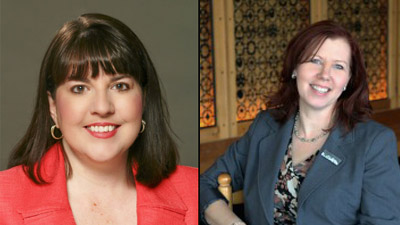Millennials feel unprepared and are unlikely to provide ethics counsel, survey may reveal solutions
March 6, 2017

By Marlene S. Neill, Baylor University, and Nancy Weaver, The Cosmopolitan of Las Vegas
The majority of millennial public relations practitioners indicated they did not feel prepared to provide ethics counsel, and surprisingly did not even expect to face ethical dilemmas, according to survey research conducted with newer members of the Public Relations Society of America.
However, we found a glimmer of hope. Those who had mentors and had completed various ethics training felt more prepared and were more likely to speak up when faced with an ethical dilemma.
The study was funded by the Arthur W. Page Center and sponsored by PRSA Board of Ethics & Professional Standards. The survey was administered during September of 2016 as part of the Ethics Month activities to approximately 1,500 members of the New Professionals section as well as members who have less than five years of experience in public relations.
A total of 290 practitioners started the survey (19 percent response rate) and 254 were eligible for the study based on their age.
Factors impacting preparedness
Using a five-point scale, the majority of millennial practitioners indicated they did not feel prepared to offer ethics counsel. Only one-third agree to strongly agree that they did feel prepared. Using statistical analysis, four factors were found to significantly impact millennials’ perceptions of preparedness: mentors, ethics courses in college, employer ethics training, and PRSA/PRSSA ethics training.
Beliefs and likelihood to provide counsel
When asked about whether or not public relations practitioners should provide ethics counsel, approximately 60 percent agreed, but only 25 percent said they were likely to do so. However, we found that confidence makes a difference, specifically comfort in discussing ethical concerns with mentors, supervisors and clients.
Implications and recommendations
These findings stand in stark contrast with survey results from 2015 with the general PRSA membership, which showed both accredited and non-accredited members are more likely than millennials to feel prepared to offer ethics counsel and more likely to offer ethics counsel . Together the findings of both studies suggest that confidence and preparedness come with more experience in public relations as well as a higher degree of socialization into the industry.
One area of concern is that while the majority of millennials in this study reported they had completed an ethics course in college, most are not receiving ethics training at work or through PRSA. As a result, they do not feel prepared to offer ethics counsel and indicated they are unlikely to do so.
Ethics training should be offered in the workplace as this study provided evidence of the connection between employer ethics training and perceptions of preparedness. Although companies could develop their own resources, they may find materials and programs offered through professional associations such as PRSA to be an efficient and effective solution.
Employers also should encourage practitioners from the millennial and subsequent generations to connect with senior practitioners within and/or outside the company with whom they can discuss ethical challenges.
This project is supported by a Page Legacy Scholar Grant from the Arthur W. Page Center. For further information on this study, please email Marlene_Neill@baylor.edu.

